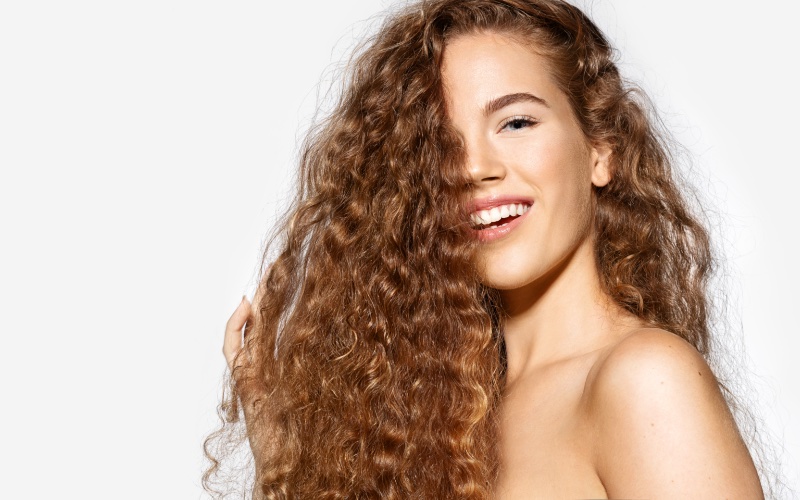Do Hair Masks Work? Everything You Need to Know
As you see more and more hair mask products popping up in the hair care aisles, you might be wondering if hair masks even work. The short answer to this question is yes; hair masks do work! But they are not miracle hair products, they do not reverse severe hair damage, and they do not fix split ends—nothing but a proper haircut can “fix” split ends.
Hair masks provide deep moisture for your hair, as well as supply your hair with proteins for strength. While hair masks do not permanently alter the structure of your hair, they can provide a meaningful temporary boost to dry or damaged hair. Here, we’ve rounded up everything you need to know about hair masks, from different types and tips on how to use them.
Hair Masks for Hair Types
Every hair type can benefit from a hair mask, but hair masks are not one size fits all. Depending on your hair type, you’ll want to avoid certain ingredients. Here’s a breakdown of what to look for in a hair mask based on your hair type.
Hair masks can be great to incorporate into your hair care routine if you have chronically dry hair. Look for masks that have moisture–rich ingredients to give your hair a solid moisture boost.
If you have oily hair, you may not need to use hair masks at all! Oily hair naturally produces plenty of moisture, so adding a moisture mask might weigh it down even more. If you do use a hair mask, choose one with lighter oils and do not apply it to your scalp to avoid excess oil buildup.
As we mentioned previously, hair masks do not repair or undo damage to your hair. However, they can temporarily protect it from getting worse. If you have chemically damaged or heat–damaged hair, try a mask with plenty of moisture and protein to keep your hair strong and avoid using hot tools for a while.
Curly and kinky hair is naturally drier, so adding a hair mask to your routine can be very beneficial. Look for hair masks that have lots of moisture–rich ingredients. Whatever hair mask you choose, keep it on your hair for the maximum recommended time.
If you have thin hair and want to try a hair mask, look for one with light oils. Do not apply the mask to your scalp to avoid weighing your hair down. Only leave the mask on for the minimum recommended time.

Tips for Using Hair Masks
- Pay attention to directions for use. Adjust according to your hair type.
- Shampoo to remove any product in your hair. Use warm–to–hot water to open up your hair follicles.
- Thoroughly rinse out the hair mask after use. You do not want any “slippery” feeling left in your hair because it can cause a buildup of product on your hair and scalp.

- Adjust hair mask use based on how often you wash your hair. If you wash your hair every day, use a mask every week. If you wash your hair every other day, use a mask every other week. If you wash your hair less frequently, use a mask even less.
Hair Mask Ingredients
It’s good to be familiar with common hair mask ingredients, and you should always check hair mask ingredients before use. Knowing what ingredients are in hair masks will help you optimize the experience and pick the best mask for your hair. Here are some of the most common ingredients in hair masks and their benefits.
This oil is one of the most common oils for scalp and hair moisturization. Argan oil is saturated with vitamin E and omega–3 fatty acids, both of which are beneficial for dry hair. Argan oil is lightweight and closely resembles naturally occurring hair oils.
Coconut oil is often used in hair masks because it does amazing things for dry hair. It contains high doses of vitamins, minerals, and amino acids that promote hair growth—plus, it smells great!
This is one of the richest oils you can find and is excellent for hair with heat–related damage. Macadamia is a high–end oil, so expect to pay a premium price for products with this ingredient.
Almond oil is excellent for those suffering from dry hair and scalp. This oil contains antioxidants, fatty acids, and proteins that all promote a healthy scalp. For split ends, almond oil also contains magnesium which can lead to less breakage. If you suffer from psoriasis or dandruff, almond oil is anti–inflammatory and can potentially help.
The baobab tree has a long history and is revered in many cultures. The oil from the baobab tree is packed with vitamins, minerals, and omega–3 fatty acids. Because of these nutrients, this oil is often used in hair loss products—but don’t let that keep you from using it as a hair mask.
Wheat proteins are excellent for thin hair because they lock onto hair follicles and give them strength.
Keravis is a vegetable–based protein and is beneficial for hair that has been damaged by hot tools. Keravis is not the same as keratin, so be sure not to confuse toe two.
While silicone can be helpful for hair, for the most part, it’s an ingredient to avoid. Silicone sits on top of the hair and does not allow any other moisturizing products to penetrate. Use heavy silicone products sparingly and thoroughly wash them out.
Final Thoughts on Hair Masks
Hair masks are not essential to your hair care routine but can have great moisturizing benefits. If you choose to use hair masks, carefully read the ingredients to determine the best mask for your hair. Make sure to pay attention to directions, too.
Hair masks cannot fix split ends or cure chemical damage. If you are experiencing severe dryness or damage, it’s best to see a professional. Lemon Tree Hair Salons salons provide deep conditioning treatments and our stylists have the skills you need to help you get the hair of your dreams. Lemon Tree Hair Salons salons are experts in the latest hair care trends and techniques and offer affordable services for the whole family! Drop into your local salon anytime, or schedule your next hair appointment online.

